Meet the projects: auDA 2024 Community Grant recipients
Each year, auDA’s Community Grant Program awards 15 grants to innovative projects that enhance the benefits of the internet to the wider community, funded by auDA Foundation. In today’s blog, we’re pleased to introduce the projects supported by the 2024 Community Grant Program.
Fifteen projects were announced at a celebration event held at the Lord Mayor’s Charitable Foundation in Melbourne on 3 February 2025. Each have been awarded a grant of $40,000 toward for initiatives that will enable more Australians to access greater value from the internet.
The Community Grant Program funds projects that support:
- Rural, regional, and remote Australians
- Australians living with disability
- Aboriginal and Torres Strait Islander peoples
- Older Australians (65 years+)
- Young Australians (12-24 years)
We asked the grant recipients to share a little about their project and what they’re excited about below.
Communication platform for remote learning in disadvantaged communities
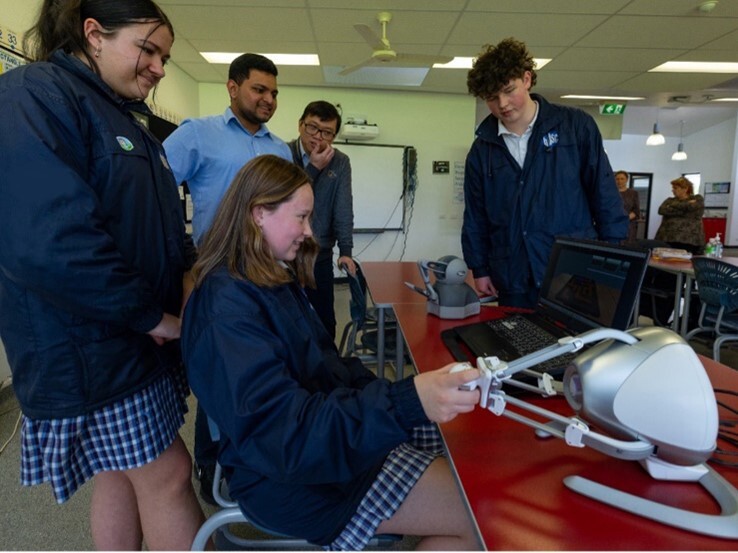
Pictured: A completed project with a rural school in Heywood VIC.
Limited access to quality Science, Technology, Engineering and Mathematics (STEM) education in rural, regional, and First Nations communities hinders students' opportunities and prospects. With its grant, the Deakin University Faculty of Science, Engineering and Built Environment will develop a reliable, haptic-enabled communication platform for remote learning that will provide immersive STEM education that seeks to bridge the digital divide and offer equitable educational opportunities for students around Australia.
“We look forward to seeing this new platform enhance STEM access, engagement and learning experiences for underserved students in rural, regional and First Nations communities.”
Dr. Van Thanh Huynh, Deakin University Senior Lecturer, Engineering.
Research into harmful digital marketing for young people
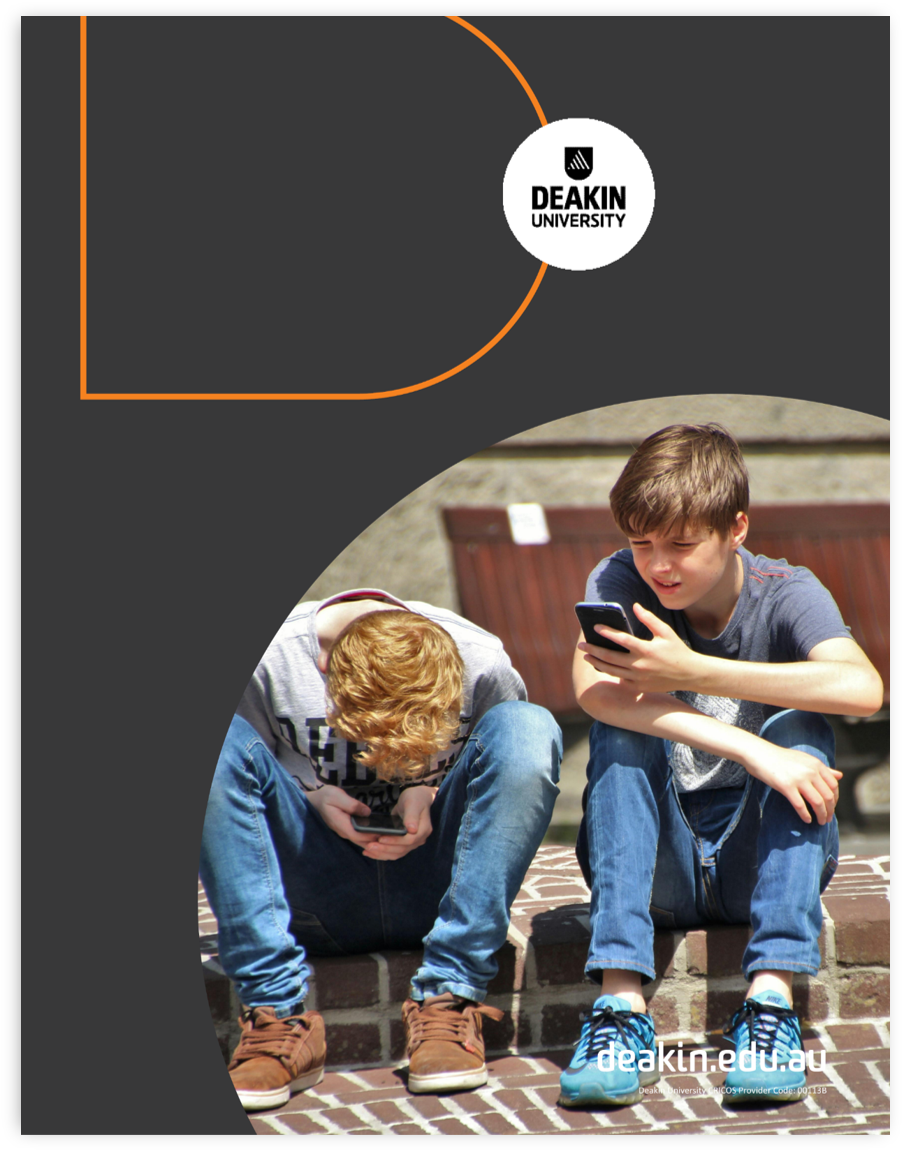
Deakin University image provided.
This project, by Deakin University’s Faculty of Health, will explore how marketing practices by the gambling, alcohol, e-cigarettes, tobacco and junk food industries target children and young people. It will use data from Deakin’s #DigitalYouth study and a purpose-built Artificial Intelligence system for detecting harmful digital marketing.
“Through this project we’re building evidence to report on the extent to which current laws and codes of practice are adhered to, or contravened, by industry. This will inform policy to protect children and young people from harmful digital marketing practices.”
Kathryn Backholer, Deakin University Professor of Global Public Health Policy.
Climate Smart Farming Toolkit
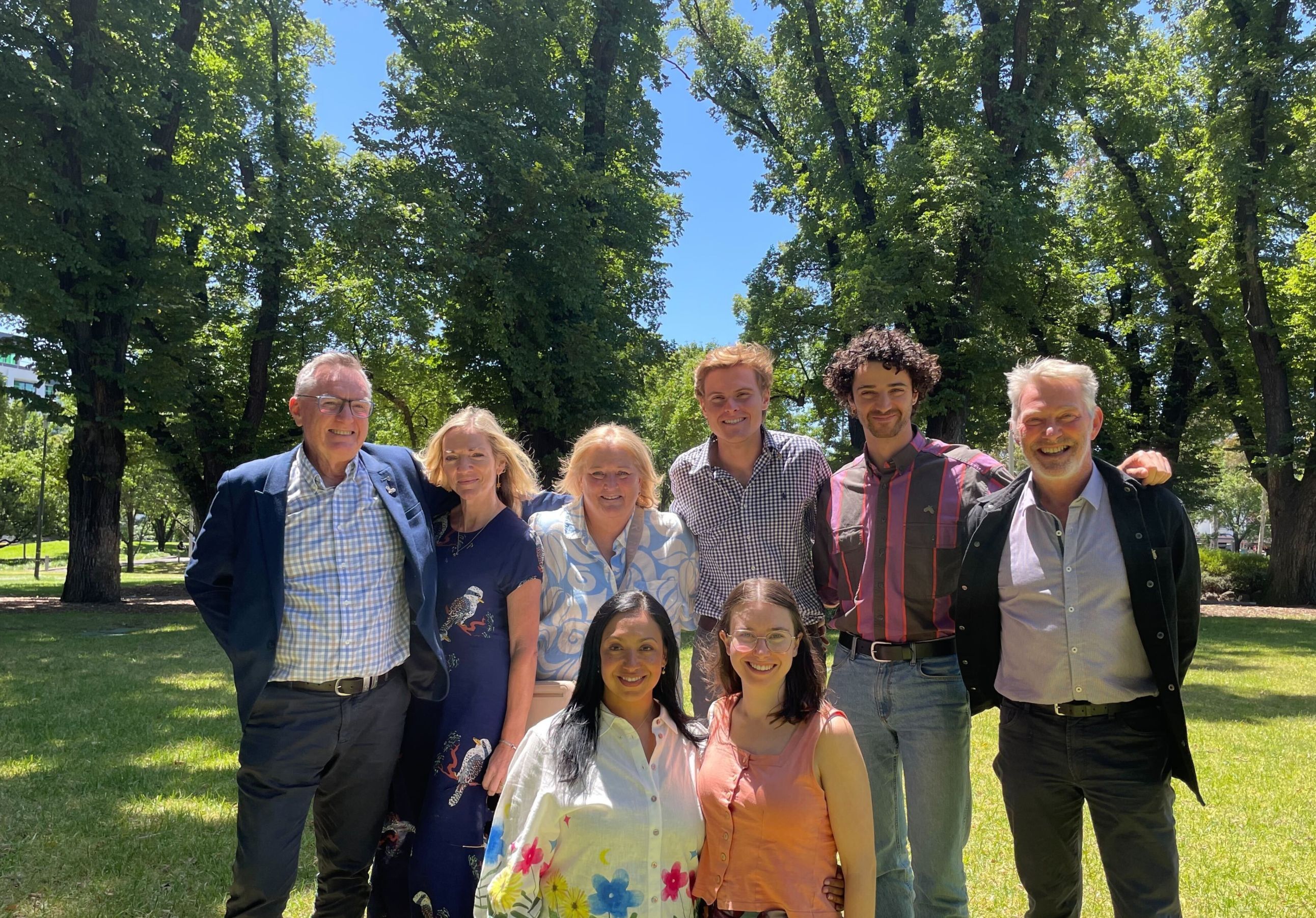
Pictured: The Farmers for Climate Action project team.
Farmers have extensive knowledge about their land but it can be difficult for them to stay up to date with climate smart farming practices. Supported by its auDA grant, the Farmers for Climate Action’s Climate Smart Farming Toolkit will direct farmers and landholders to trustworthy, reputable sources of information in a searchable digital database.
“I’m excited to see Australia’s farmers, thinkers and researchers come together to create a Toolkit that is practical and gives farmers information to reduce their emissions and adapt to climate change.”
Caleb Connor, Farmers for Climate Action Senior Manager Policy & Programs.
Digital forums for older Australians
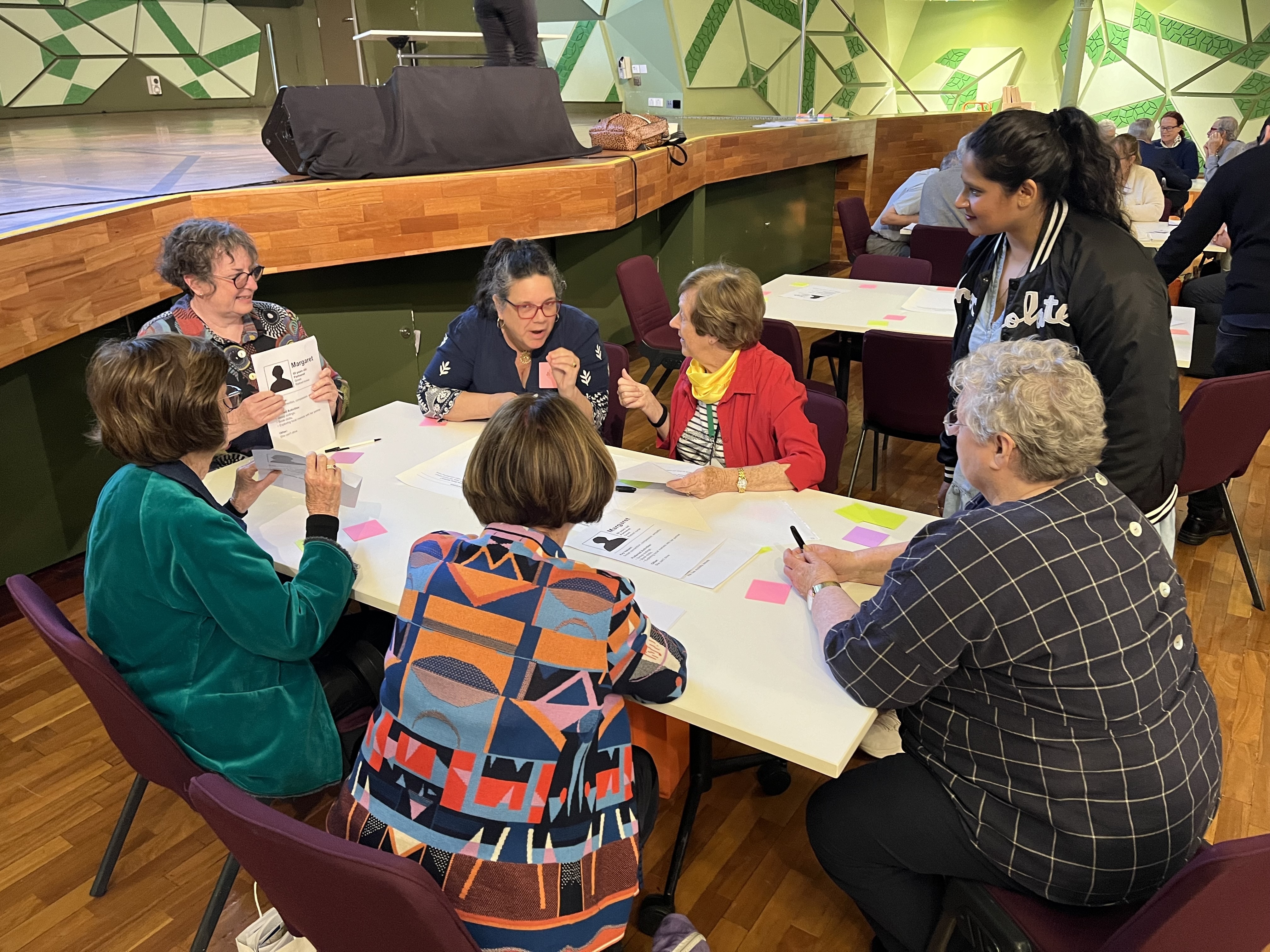
Pictured: RMIT University co-design session to develop digital forums.
RMIT University was awarded its grant to develop digital forums for older Australians so they can engage in virtual communities that provide social support and grow digital literacy. The project aims to enhance digital inclusion among seniors by developing digital tools and healthy aging content and foster meaningful social connections among older Australians.
“There is still a major need for peer-to-peer mentoring and online connection as many older Australians ageing at home have access to online content, yet lack confidence navigating digital health information and services to find trustworthy information.”
Jenny Robinson, Co-Chief Investigator, RMIT University.
Erub Mer Living First Language Digital Hack-a-thon Camp
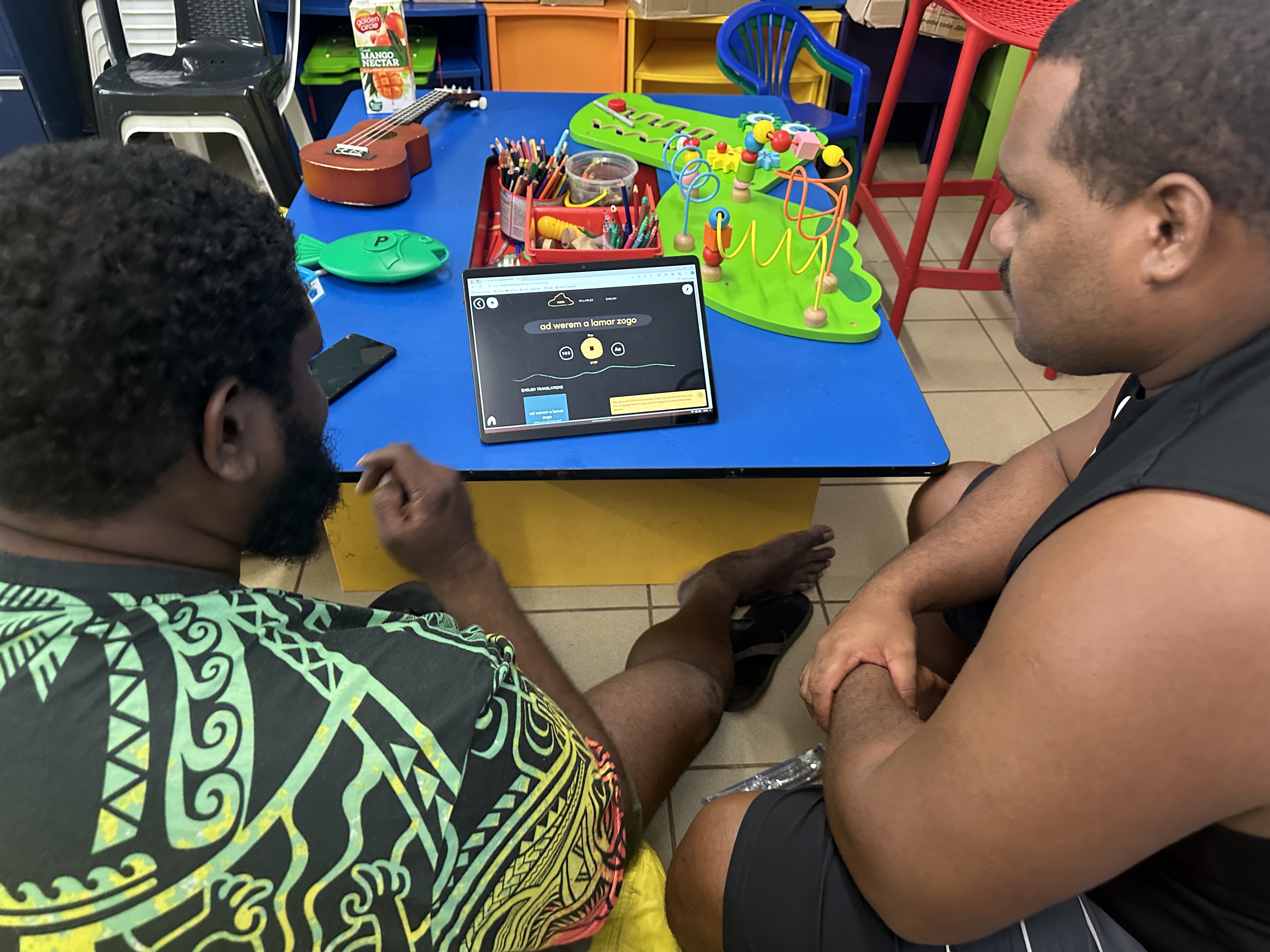
Pictured: First Nations people using ALNF Erub Mer Language tools.
Through its community grant, the Australian Literacy and Numeracy Foundation will deliver the Erub Mer Hack-a-thon. The Hack-a-thon is designed to support local Language revitalisation, maintenance and teaching through the development of interactive digital resources in Erub Mer Language for First Nations people in the Torres Strait.
“Language is crucial to the vitality and strength of First Nations communities. It is truly special to witness the Erub community’s dedication to celebrating their Language and pursuing innovation to weave their Language and Culture throughout everyday life. The Hack-a-thon is a fantastic opportunity to innovate further and for Elders and youth to inspire one another.”
Eric Brace, ALNF Director of First Languages and Digital Innovation.
Cool.org AI: Teacher Feature Differentiation Tool
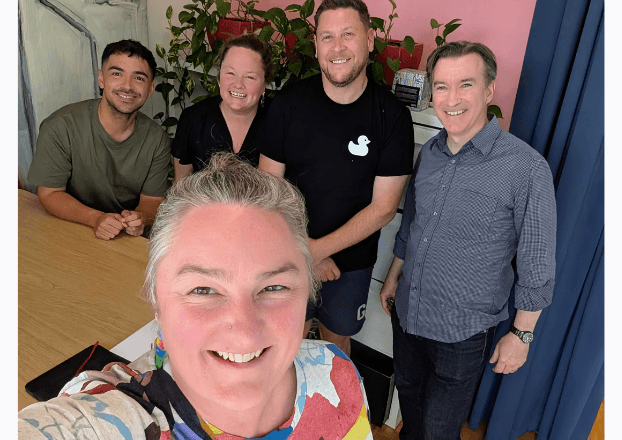
Pictured: The Cool.org project team.
With its auDA community grant, The Trustee For The Cool Australia Trust will develop the Cool.org AI: Teacher Feature/Differentiation Tool, which aims to revolutionise lesson development for Australian teachers. The AI tool will be trained on Cool.org’s catalogue of over 3,000 curriculum-aligned, evidence-based lessons, enabling teachers to create resources that cater to varied student learning styles and needs and supporting high quality education materials regardless of geography or socioeconomic background.
“We’re proud to introduce a game-changing tool that will help teachers create engaging, contemporary lessons. Powered by AI and aligned with the Victorian and Australian Curriculum, the tool will enable educators to adapt resources to their students’ unique needs, ensuring every learner thrives.”
Thea Stinear, Cool.org CEO.
The BRIGHTEST project: Hep-B test result online tool
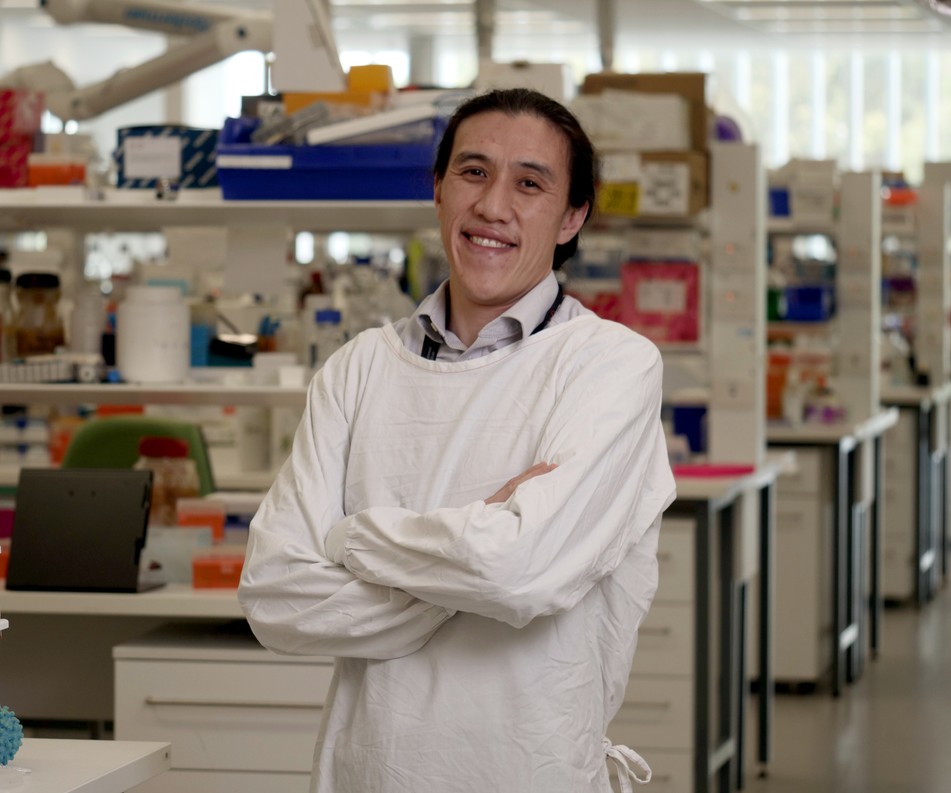
Dr Thomas Tu, Adjunct Associate Professor, Westmead Institute for Medical Research.
Hepatitis B affects 300 million people globally and causes more than 1 million deaths annually. With its grant funding, the Westmead Institute for Medical Research will develop an online tool to explain Hepatitis B lab tests in language that people can easily understand, enabling them to make better, more informed choices about their health and support improved health outcomes.
“This project aims to empower people with chronic hepatitis B to make decisions for themselves. We are excited to develop educational tools with the affected community directly for the affected community.”
Dr Thomas Tu, Adjunct Associate Professor, Westmead Institute for Medical Research.
Digital Dilly Bag - First Nations data sovereignty
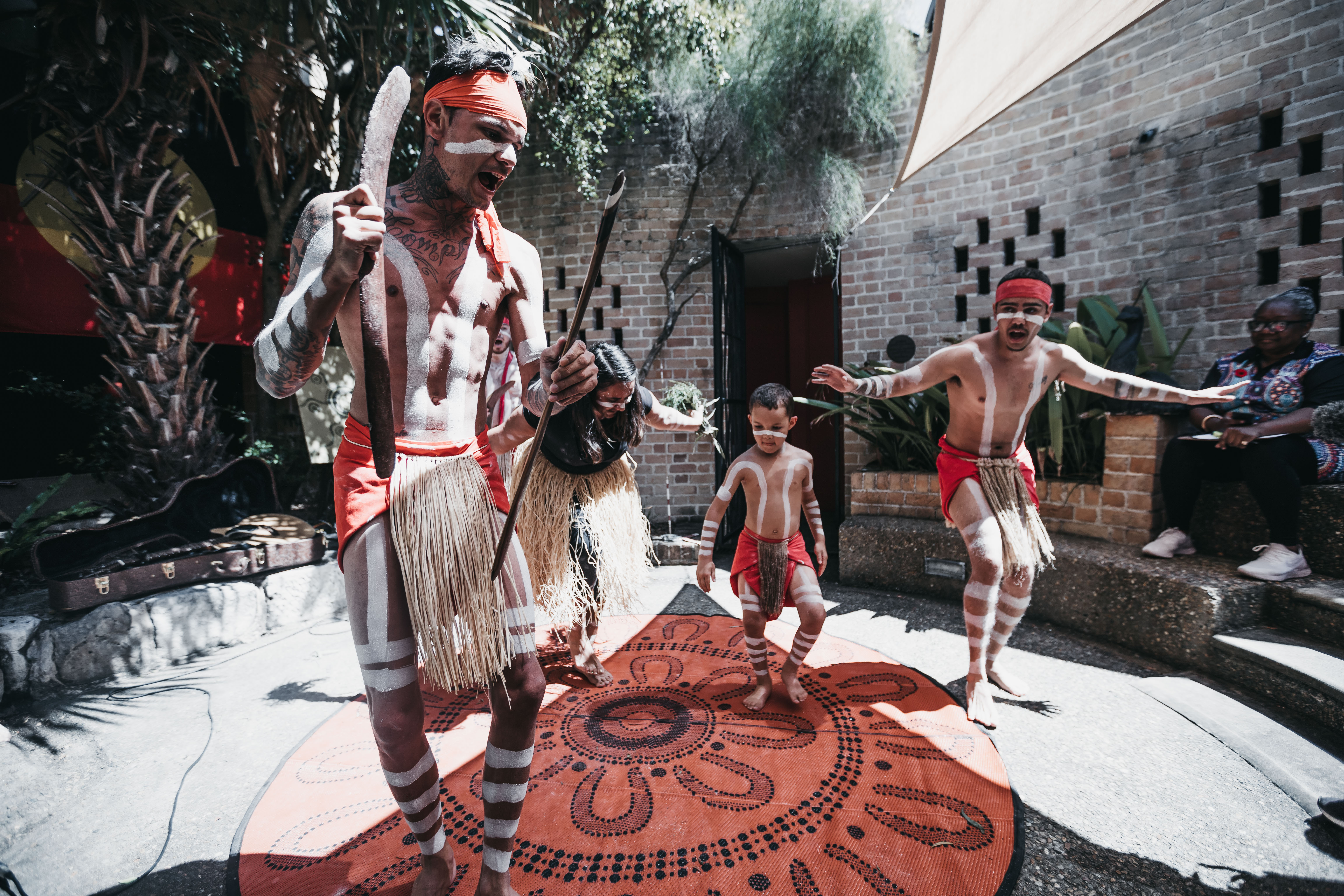
Tranby Aboriginal Cooperative supplied image.
The Digital Dilly Bag project, undertaken by Tranby Aboriginal Co-operative Ltd, will focus on Aboriginal and Torres Strait Islander data sovereignty by creating a secure digital hub for preserving knowledge in a culturally sensitive manner. The project will capture and store vital stories of Elders and communities and create a blueprint for sovereign data capabilities for communities across Australia.
“We’re excited about creating a framework for First Nations communities to govern collection, ownership and application of cultural knowledge. We aim for the Digital Dilly Bag to provide a demonstrable example of an Indigenous-led and controlled safe keeping place for digital data.”
Brendan Pigram, Tranby Aboriginal Cooperative General Manager.
Digital inclusion measurement through Seedkit
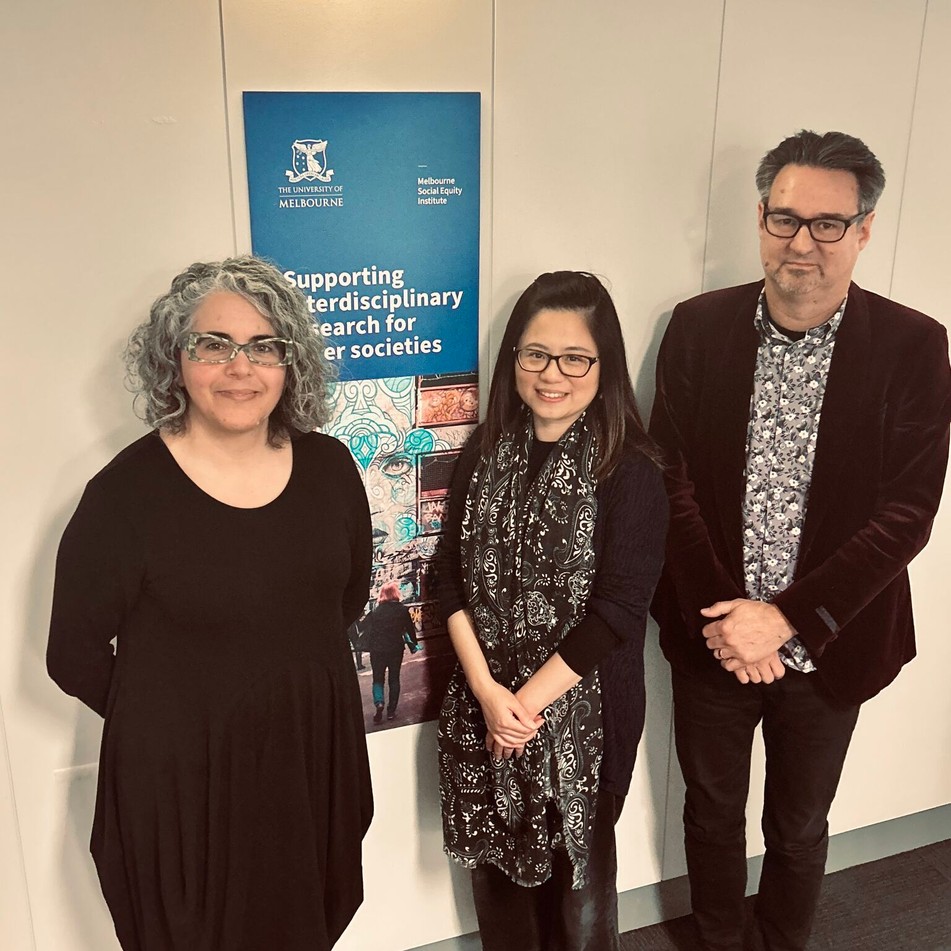
University of Melbourne, Melbourne Social Equity Institute’s Seedkit team.
Through its project, the University of Melbourne, Melbourne Social Equity Institute aims to develop resources to support for-purpose organisations to measure and communicate digital inclusion in the Australian context. The resources will be made available via the Seedkit platform, ready for public access.
“More than two million Australians are digitally excluded. For-purpose organisations and social enterprises working to address digital exclusion have critical on-the-ground expertise to create meaningful change, but are often not resourced to measure their impact. Our project will build the capacity of these organisations to measure and communicate their digitial inclusion impact.”
Professor Jo Barraket AM, Director, Melbourne Social Equity Institute.
ENACT: Roadmap for cognitive-friendly technology
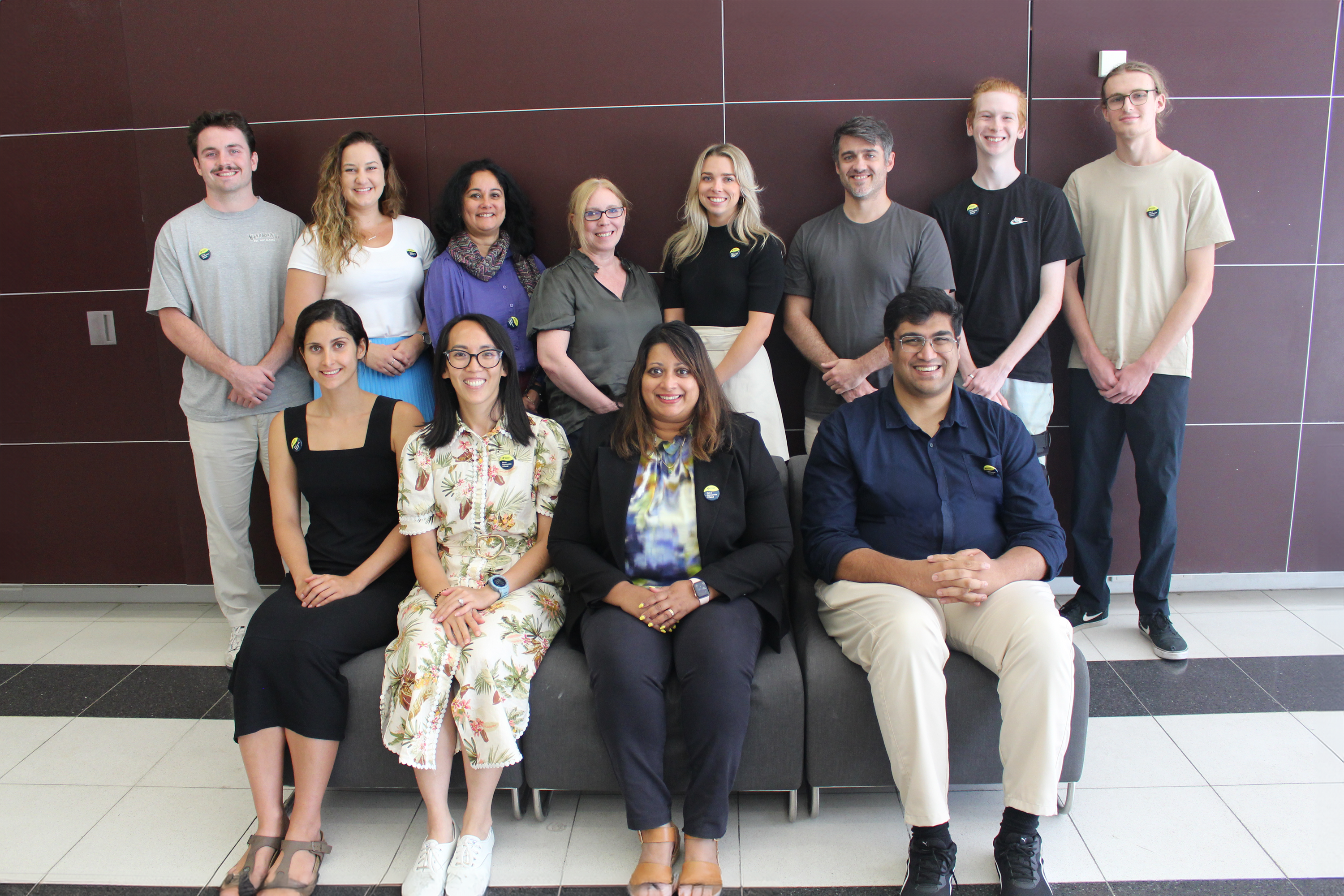
Pictured: The University of Queensland project team.
The University of Queensland is working with people with cognitive impairment and those who support them to co-create a roadmap for developing cognitive-friendly technology. The roadmap will guide the development of more accessible and effective technologies and aims to ensure future technological innovations better serve and support people with cognitive impairment.
“The most exciting aspect of this project is working directly with people with cognitive impairment and their support person to co-create the roadmap. Having witnessed many participants withdraw from research due to technology challenges, we hope this addresses a critical gap with practical, accessible solutions.”
Dr Elton Lobo, University of Queensland Dementia & Neuro Mental Health Research Unit Research Fellow.
BEeT for Youth: online treatment for binge eating in young people
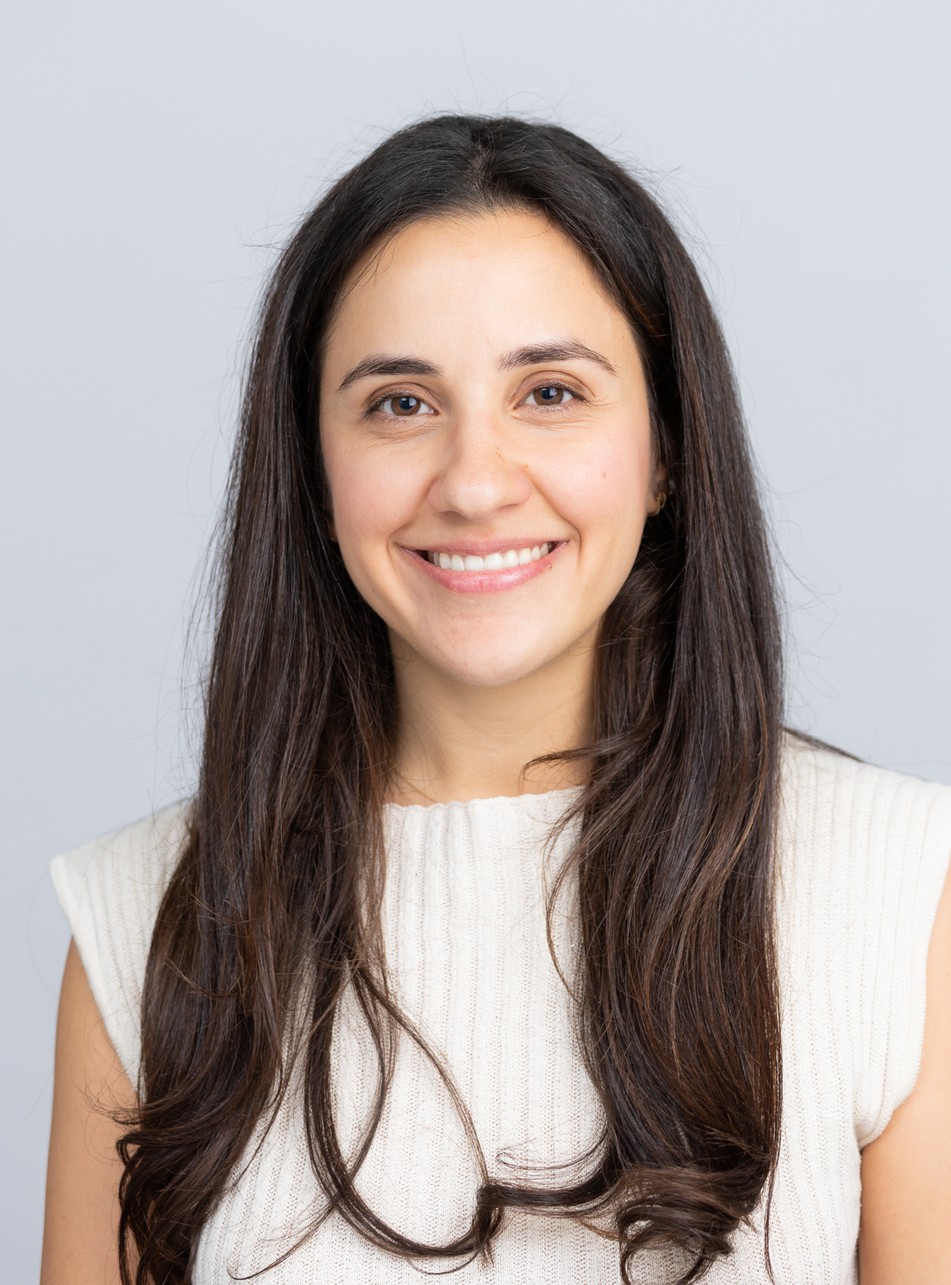
Pictured: Dr Sarah Barakat, InsideOut Institute for Eating Disorders, University of Sydney and Sydney Local Health District.
Binge Eating eTherapy (BEeT) for Youth will deliver a co-designed and gamified adaptation of a proven online cognitive behaviour therapy (CBT) treatment for adults, designed to assist young people who are experiencing binge eating. The team at InsideOut Institute for Eating Disorders, based at the University of Sydney, will test the adaptation to identify if it is effective for children and young adolescents.
“I’m excited to engage children and young people in the co-design process and testing of this online treatment program. Childhood eating behaviours lay the foundation for a person’s lifelong relationship with food Early intervention is key and we hope that designing this treatment with children and young people will result in a more effective approach.”
Dr Sarah Barakat, InsideOut Institute for Eating Disorders, University of Sydney and Sydney Local Health District.
Westlake Collection: cultural resurgence through online archives
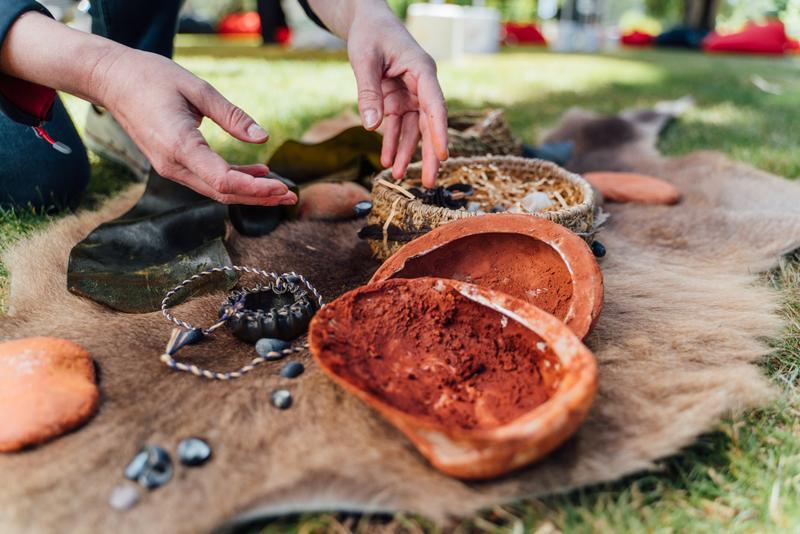
University of Tasmania supplied image.
With its grant funding, the University of Tasmania will develop online archives to create a culturally safe online space where Palawa (or Pakana/Tasmanian Aboriginal) can access and explore key documentary heritage materials, in support of language reconstruction and cultural resurgence.
Digital inclusion for Australians living with disability
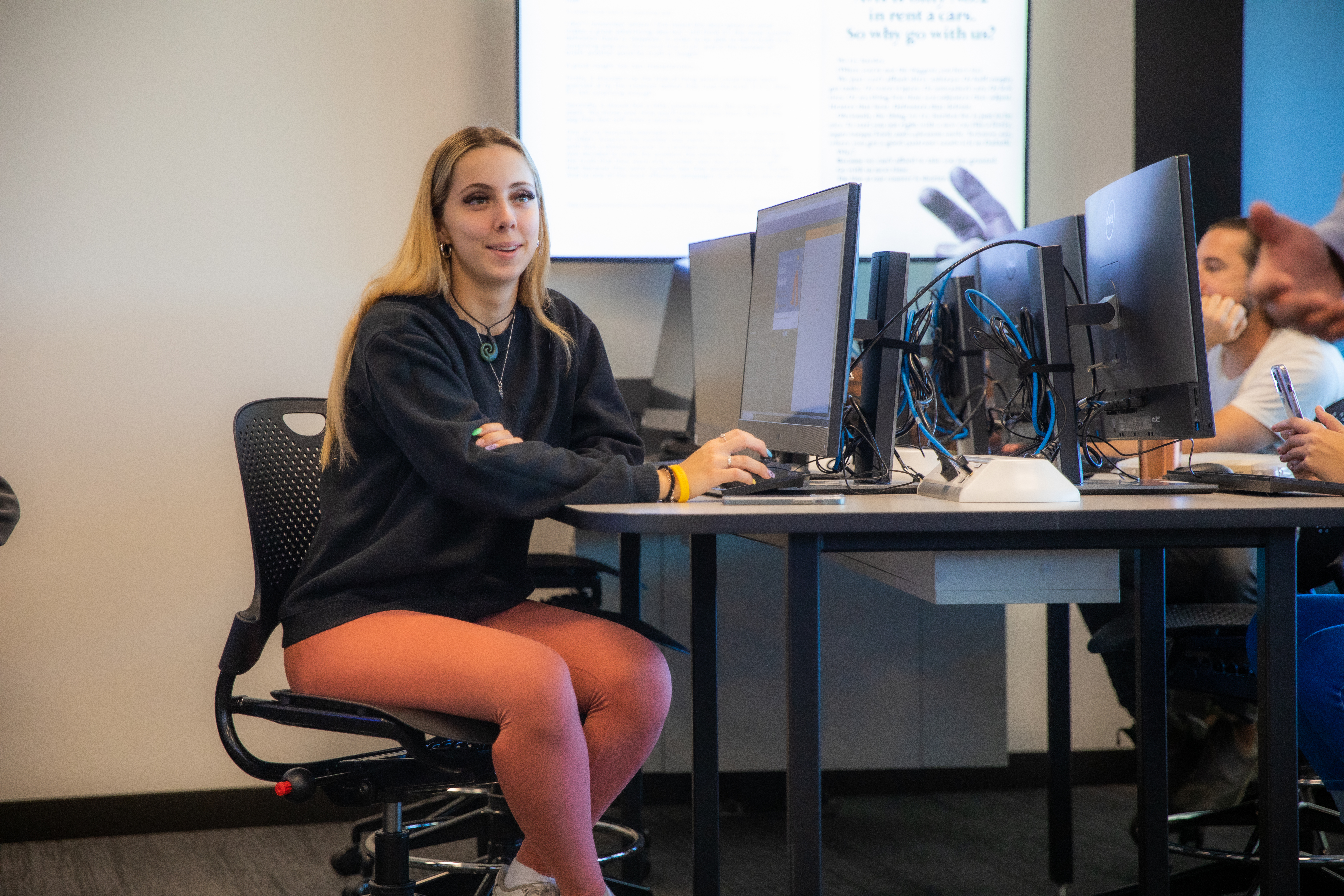
University of the Sunshine Coast supplied image.
The University of the Sunshine Coast and Electronic Frontiers Australia will work with Australians living with disability to identify needs and requirements for security and privacy in accessibility apps. Through Project CASSowary, they will design an evaluation framework to identify how well an app manages the privacy and security of users living with disability.
“Using additional supports does not make someone less worthy of having their privacy and data protected. We seek to advance digital inclusion of Australians living with disability by co-creating an evaluation framework assessing the privacy and security of accessibility apps.”
Dr Erica Mealy, University of the Sunshine Coast Senior Lecturer, Computer Science.
Raising the Game Portal employment opportunities for neurodivergent youth
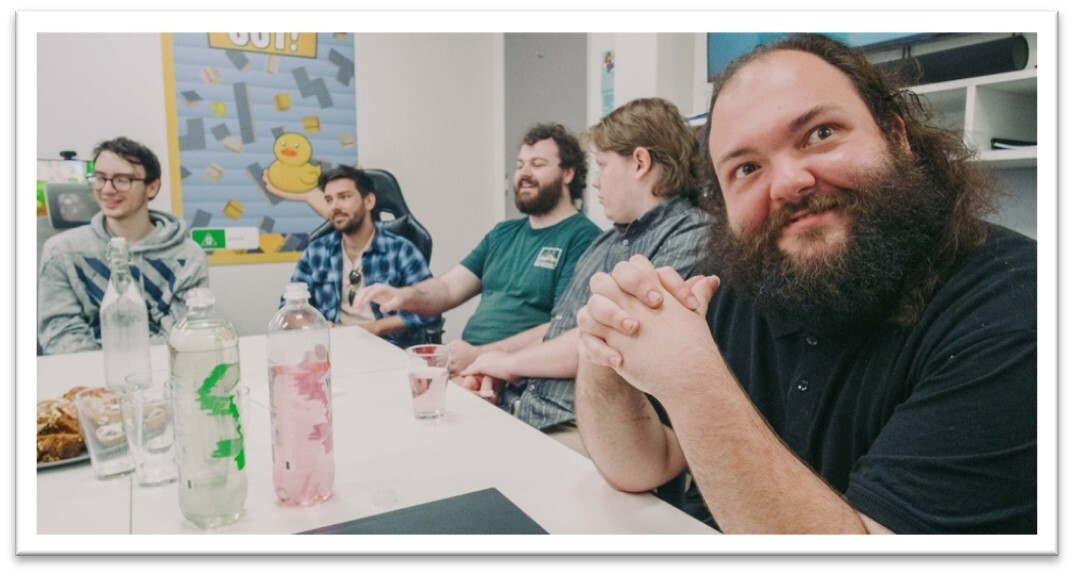
Pictured: Youth Options “Raising the Game” game testers.
With auDA’s support, Youth Options will create an online portal to administer the Raising the Game social enterprise, which provides employment opportunities for neurodivergent youth as game testers. This project will use digital technologies to build a pipeline of testing work and create new job opportunities for neurodivergent youth.
“Neurodivergent young people are keen learners and have untapped potential as employees in the right environment. I’m super excited to celebrate the superpowers of neurodivergent youth that make them ideal game testers.”
Michelle Braham, Youth Options CEO.
IndigiSTEMM Jila HUB education platform
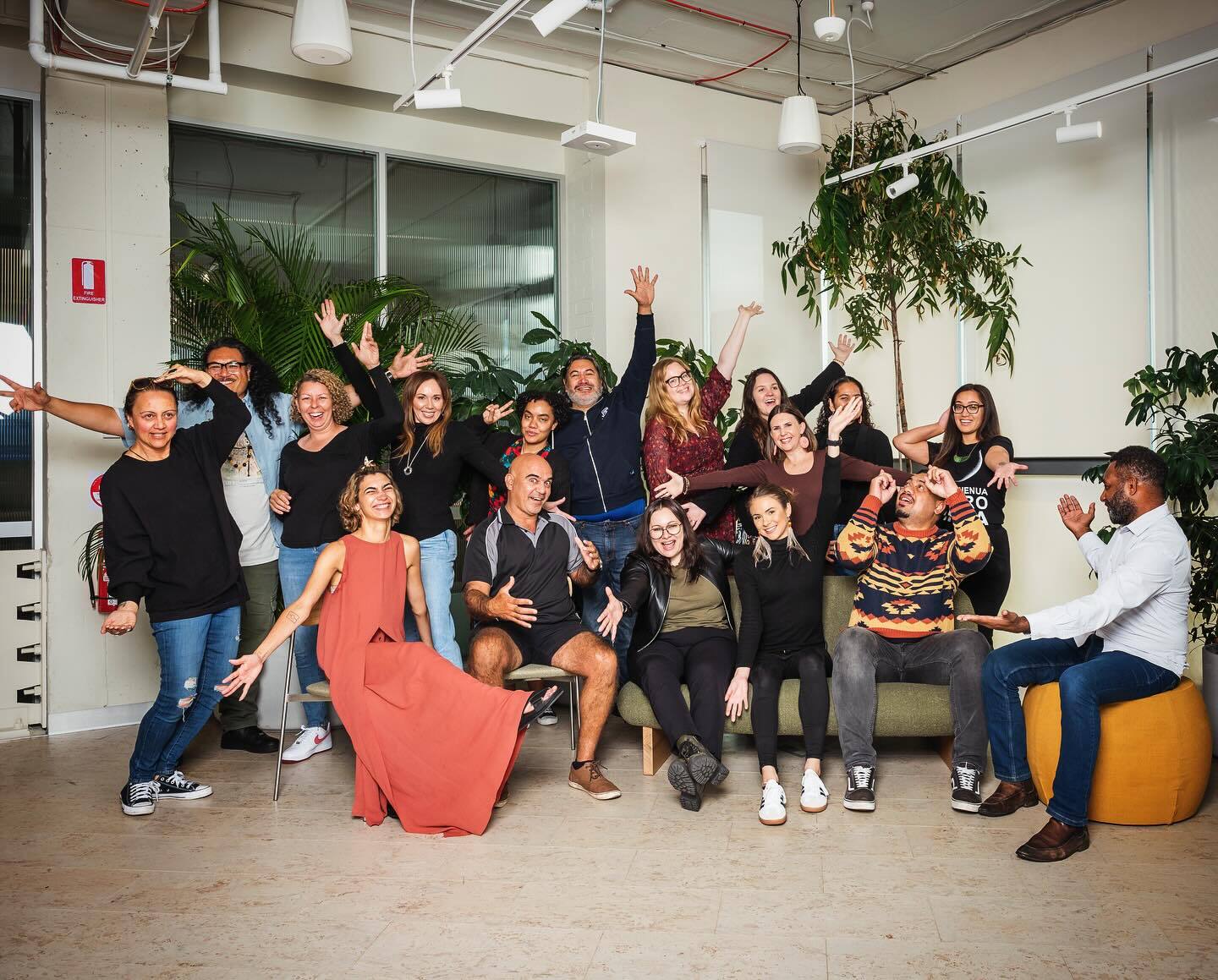
Flinders University supplied image.
With its community grant, Flinders University will create the IndigiSTEMM Jila HUB. The HUB will be a culturally safe digital platform that integrates Aboriginal and Torres Strait Islander knowledge with Science, Technology, Engineering, Mathematics and Medicine (STEMM) education to offer tailored educational resources for Aboriginal and Torres Strait Islander youth and cultural competency training for STEMM professionals.
auDA congratulates the recipients of the 2024 Community Grant Program and looks forward to seeing the impacts their projects make.
Learn more about auDA’s public impact work, including advocacy for internet governance and public policy and our Research and Development Grant Program.